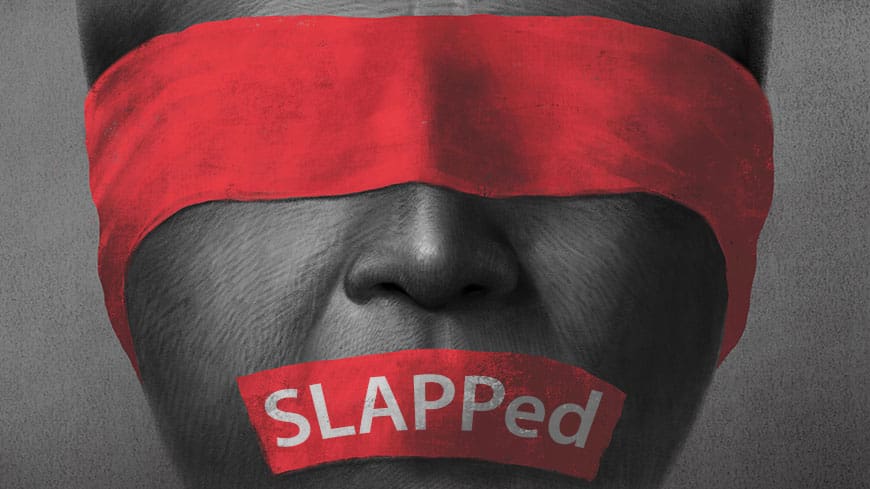A Strategic Lawsuit Against Public Participation (SLAPP) refers to a legal action filed to suppress or silence individuals, media, or groups who engage in public participation and express their opinions on matters of public concern. SLAPP suits are typically brought by powerful individuals, corporations, or organizations against activists, journalists, community organizations, or whistleblowers. They are seen as legal bullying, intending to chill free speech and impede the democratic process.
The primary objective of a SLAPP suit is not to seek legitimate legal recourse or obtain a favorable judgment. Instead, it aims to intimidate, harass, burden, or financially exhaust the defendants, discouraging them from engaging in public discourse or criticism. SLAPP suits are seen as a form of legal bullying, intending to chill free speech and impede the democratic process. The lawsuits are typically based on defamation, libel, slander, or other legal claims related to damaging a person’s reputation.
What sets SLAPP suits apart is their strategic nature. They are not necessarily focused on winning the case in court but rather on creating a chilling effect by burdening the defendants with costly legal fees, time-consuming litigation, and reputational damage. SLAPP filers may exploit legal loopholes or utilize the asymmetry of resources to exhaust and intimidate their opponents.
To counter SLAPP suits, some jurisdictions have enacted anti-SLAPP legislation. These laws aim to protect defendants from frivolous or retaliatory legal actions by allowing for early dismissal of such cases, awarding attorneys’ fees to the defendant, or providing other safeguards. Anti-SLAPP laws promote the principles of free speech, public participation, and democratic engagement by deterring the misuse of the legal system to stifle dissent.
Overall, SLAPP suits are seen as a threat to exercising free speech, civic engagement, and the right to criticize or challenge powerful entities. They highlight the need for legal protections and mechanisms to safeguard individuals and organizations from abusive litigation intended to suppress public participation and silence dissenting voices.
